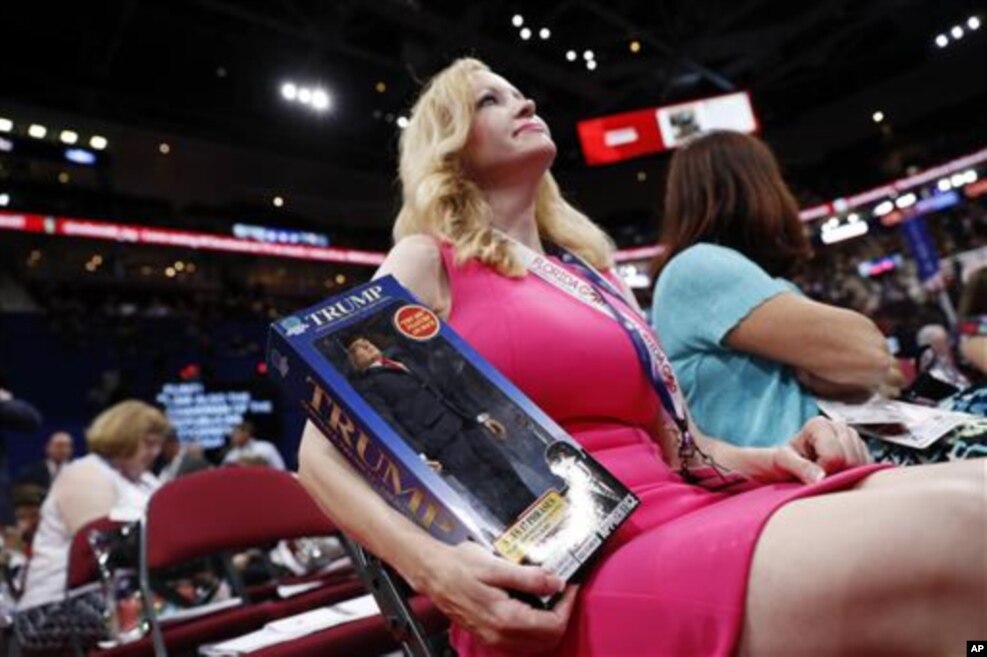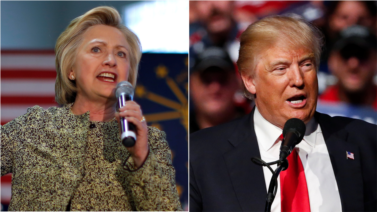
Young supporters of Republican Donald Trump or Democrat Hillary Clinton agree improving the economy is a major issue.
But young supporters of the two main presidential candidates disagree about the remaining top issues. That is what a new poll by the John F. Kennedy School of Government at Harvard University found.
The poll suggested young Americans supporting Trump consider the spread of terrorism and dealing with immigration as two of the main issues.
Supporters of Clinton consider reducing inequality and uniting the country as two of their top issues.
Harvard released the poll Monday to mark the start of the Republican National Convention in Cleveland, Ohio.
On Thursday, Trump, a wealthy businessman, is expected to accept the Republican nomination for president. Democrats are expected to nominate Clinton, the former secretary of state, next week at their convention in Philadelphia, Pennsylvania.
The Harvard University poll questioned 1,000 Americans aged 18-29 years old.
Young people in that generation are known as Millennials and they are important to the future of the country, say polling experts.
John Della Volpe is director of polling at the Institute of Politics.
He said leaders of both the Republican and Democratic parties are risking the loss of involvement of young voters. He said the parties need to respond to the interests and concerns of Millennials.
If they do not respond to young voters, either in election years or when then there is no election, Della Volpe said: “There is every chance that we will lose their participation in politics and their support of government.”
That could “paralyze American progress,” he said.
Another poll found 59 percent of Americans are exhausted, or very tired, by all the news coverage of the presidential election. A smaller percentage, 39 percent, said they like getting a lot of coverage.
That information comes from the Pew Research Center.
What election stories are Americans the most tired of?
According to Pew, 44 percent of voters said they are tired of stories reporting on candidates' comments as they campaign. A similar percentage of voters are tired of stories about candidates' personal lives. Thirty-seven percent do not like stories that tell them who is leading in the polls.
But a very small percentage, 15 percent or less, are tired of stories about candidates' experience and their stands on the issues.
Bruce Alpert reported on this story for VOANews.com. Mario Ritter was the editor.
We want to hear from you. Write to us in the Comments Section and share your views on our Facebook Page.
Words in This Story
poll -- n. an activity in which several or many people are asked a question or a series of questions in order to get information about what most people think about something
respond -- v. to say or write something as an answer to a question or request
paralyze -- v. to make someone or something unable to function, act, or move
exhausted -- v. very tire
coverage -- n. news about an event or group


